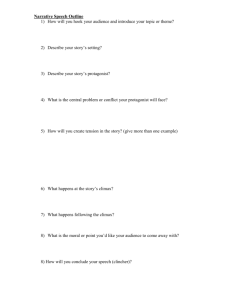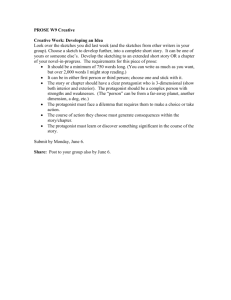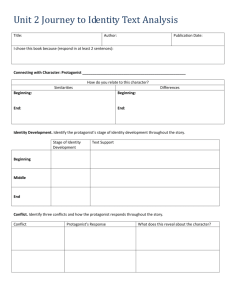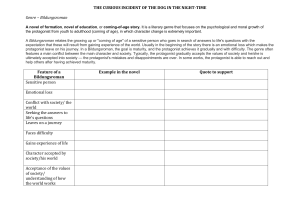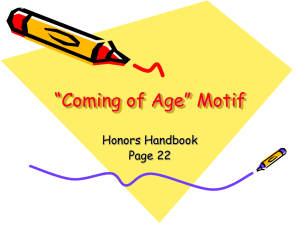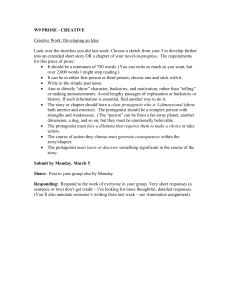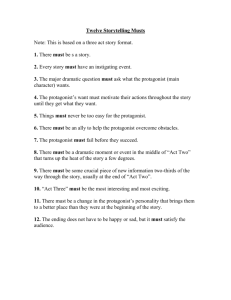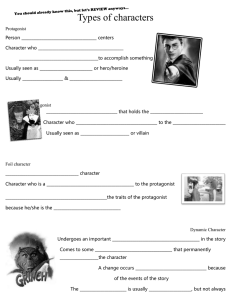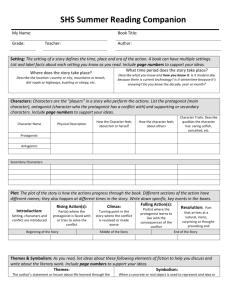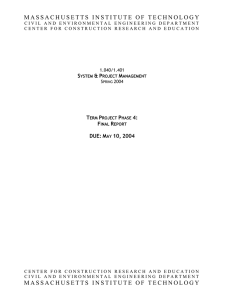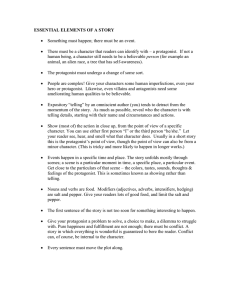File
advertisement
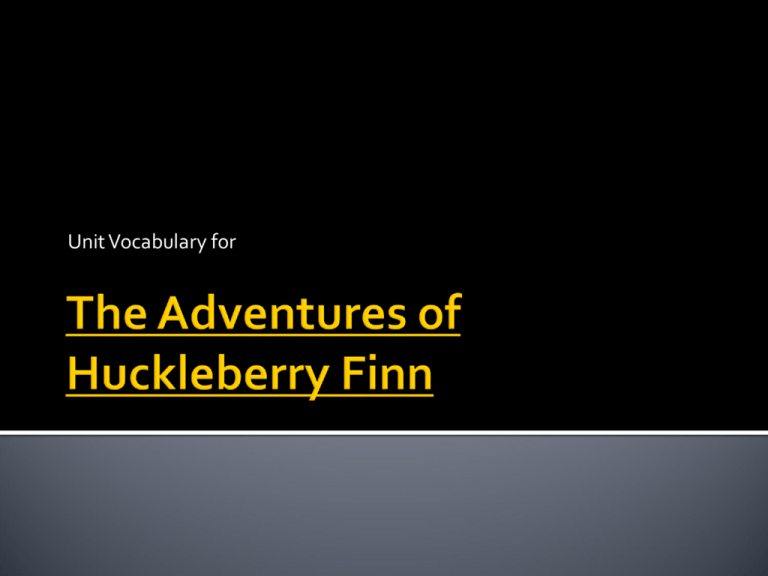
Unit Vocabulary for Local Color: a type of writing that shows the speech, dress, customs, behaviors and geography of a particular region Dialect: an unusual variety of language spoken which varies depending upon the region of the country you’re from Colloquialism: an expression used in informal conversation, but not accepted as good usage in formal language or writing Y’all, gonna, wanna Irony: the opposite happens of what you expect Verbal: saying the opposite of what you mean for effect ▪ TV over homework Dramatic: when the audience knows something the characters don’t know ▪ Horror movies Situational: the exact opposite of what is expected to takes place (a twist at the end of the story; a surprise ending) ▪ A fire station burns to the ground. Pun: a play on words based on their double meaning “I used to be a baker, but I didn’t make enough dough.” Satire: a method of criticizing human failures or society's weaknesses by poking fun at them (the purpose is bring about change) Juvenalian: biting, bitter, angry Horatian: gentle and humorous Malapropism: substituting one word for another because they sound similar “California has a lot of electrical votes.” Idiom: a phrase that you don’t take literally or at its face value (regionally agreed upon) “It’s raining cats and dogs.” Understatement: when something is intentionally represented as less than it is Making something serious seem inconsequential Hyperbole: to exaggerate for effect Overstatement: to make a minor problem seem critical Melodrama: dramatic piece with exaggerated characters and exciting events to appeal to the emotions Stereotype: popular belief about specific social groups or types of individuals Picaresque Novel Prose Fiction Satirical depiction of real-life occurrences through a roguish hero of low social class who lives by wit in a corrupt society. Bildungsroman Novel that focuses on psychological and moral growth of a protagonist from youth to adulthood. (Coming of Age) ▪ Character change is extremely important Protagonist Main character, trying to accomplish a goal Antagonist Protagonist’s opposition Foil A character who contrasts with another character to highlight various features of that other character's personality, throwing these characteristics into sharper focus. ▪ Physical, mental, emotional Realism ≈ 1860 – 1890 Depictions of contemporary life and society "as they were.“ Everyday experiences vs. romanticized events Quest literature based on a journey, a road of trials in which a hero hears a call and leaves his home— alone or in the company of others—to search out a treasure. Along the way he undergoes trials, receives aid, fights enemies and may even die, and, if he succeeds in attaining the treasure sought, may change who and what he is. Finish the rest of the vocabulary on your own. Note: for characterization, make sure you can differentiate between direct and indirect!
